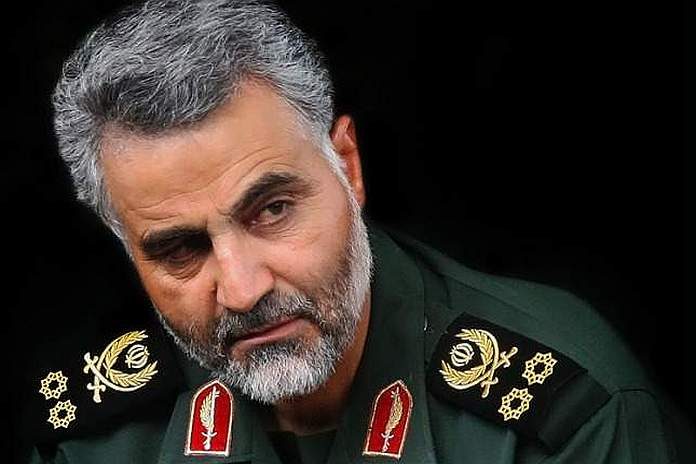NEW YORK, USA –UN secretary-general António Guterres has expressed deep concern over the latest escalation in tension across the Gulf region, following the killing of Qasem Soleimani, the head of the Islamic Revolutionary Guard Corps-Quds Force, in Iraq, in an airstrike carried out by the United States.
“At the direction of the president, the US military has taken decisive defensive action to protect US personnel abroad by killing Qasem Soleimani, the head of the Islamic Revolutionary Guard Corps-Quds Force, a US-designated Foreign Terrorist Organization.
“General Soleimani was actively developing plans to attack American diplomats and service members in Iraq and throughout the region. General Soleimani and his Quds Force were responsible for the deaths of hundreds of American and coalition service members and the wounding of thousands more. He had orchestrated attacks on coalition bases in Iraq over the last several months including the attack on December 27th culminating in the death and wounding of additional American and Iraqi personnel. General Soleimani also approved the attacks on the US Embassy in Baghdad that took place this week.
“This strike was aimed at deterring future Iranian attack plans. The United States will continue to take all necessary action to protect our people and our interests wherever they are around the world,” US Department of Defense.
In a statement issued on Friday morning, UN deputy spokesperson Farhan Haq, said that the UN chief had “consistently advocated for de-escalation”, adding that “this is a moment in which leaders must exercise maximum restraint.”
Iraqi militia leader Abu Mahdi al-Muhandis, was also among those killed during the strike, according to media reports. His Kataib Hezbollah group had been blamed by the US for a rocket attack that killed a US civilian contractor in Iraq a week ago, and he led a group of militias within Iraq, aligned with Iran.
Iran’s supreme leader, Ayatollah Ali Khamenei, issued a statement calling for three days of public mourning following the death of General Soleimani and said there would be retaliation for the US strikes, according to news reports.
“This is a moment in which leaders must exercise maximum restraint”, said the statement from the UN secretary-general. “The world cannot afford another war in the Gulf.”
Speaking to reporters at UN headquarters in New York during the regular Noon briefing, Haq said that Guterres had spoken to the US ambassador to the UN about the situation within the past half hour but did not give details of the call. He said the UN would continue its extensive work on the ground in Iraq, and the UN Mission there, UNAMI, would continue to advocate strongly for stability across the country. Haq said there was no change to report in the deployment of UN personnel at this time.
The UN Special Representative, Jeanine Hennis-Plesschaert, responded to the UN chief’s message by saying that unless restraint is shown by leaders across the region, the result could be “another devastating cycle of violence”.
“For too long” she said on Twitter, “Iraq has been a theatre for different power competitions. Iraqis deserve stability and peace. Cool heads must prevail.”
In a series of tweets, the independent UN expert on extrajudicial, summary or arbitrary executions, Agnes Callamard, questioned the legality under international law of the US strike, and urged the UN to use the “legal tools and the platform” at its disposal, to intervene more robustly.
“There is no more pressing time for the UN and its leadership to step up than now”, she said.
Meanwhile, Iran’s supreme leader named the deputy head of the Revolutionary Guards’ foreign operations arm Esmail Ghaani to replace its Quds force commander Friday.
“The orders for the [Quds] Force remain exactly as they were during the leadership of martyr Soleimani,” said the supreme leader. I call on the members of the force to be present and cooperate with General Ghaani and wish him divine prosperity, acceptance, and guidance,” he added.





